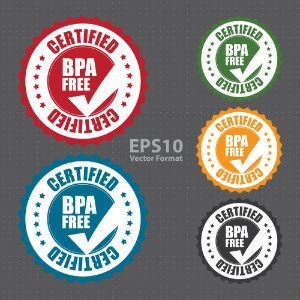If you’ve been practicing a healthy lifestyle for awhile now, you’re probably familiar with the health dangers of BPA. Many manufacturers of plastic products are now coming out with BPA-free alternatives http://www.dreddyclinic.com/forum/viewtopic.php?f=11&t=33661 to appease the health-conscious consumers, but this may not be enough. Sciences tells us that the chemicals used to replace BPA, namely BPS and BPF, may be just as bad. Fortunately, safer alternatives do exist.

The Dangers of the BPA Substitutes BPS and BPF
Compounds in common plastic products have been linked to disruption in hormone levels http://www.dreddyclinic.com/forum/viewtopic.php?f=122&t=32200 which can lead to weight gain, fertility issues, and even cancer. These dangers have prompted many companies switched to BPA substitutes in effort to provide safer products for the public. The thing is, Bisphenol S and Bisphenol F (the main replacements for BPA) are no better. [1] The replacements are still linked to obesity, cancer, and hyperactivity.
BPA Substitute Dangers
You may think that choosing products with a BPA-free label is doing your body good, but think again. This over zealous yet misguided marketing term is doing more harm than good, and the science is showing it. Recent evidence suggests that BPA substitutes, like BPS and BPF, also interfere with the endocrine system, potentially reducing serum testosterone http://bit.ly/testosterone-support concentration in males. [2] [3] Others have suggested that the BPA substitutes are linked with irregular heartbeats, too. [4]
How Can I Avoid BPA, BPS, and BPF?
Fortunately, by avoiding BPA or any of its many alternative, you can limit your exposure to this harmful ingredient. By avoiding things like food wrap, plastic containers, plastic bags, hard plastic water bottles, and cleaning products that contain plastic you will certainly limit your exposure. You can instead use stainless steel water bottles, plastic-free cleaning supplies, glass containers, and ceramic cookware.
How have you eliminated BPA and its substitutes from your life? Leave a comment below and share a tip.
by Dr. Edward Group DC, NP, DACBN, DCBCN, DABFM
References:
1. Reuters. Replacement for BPA in plastics also suspect: study http://www.reuters.com/article/2015/01/13/us-canada-study-bisphenol-idUSKBN0KM02G20150113. Reuters.
2. Eladak S, Grisin T, Moison D, et al. A new chapter in the bisphenol A story: bisphenol S and bisphenol F are not safe alternatives to this compoundhttp://www.ncbi.nlm.nih.gov/pubmed/25475787. Fertil Steril. 2015 Jan;103(1):11-21. doi: 10.1016/j.fertnstert.2014.11.005.
3. Rochester JR, Bolden AL. Bisphenol S and F: A Systematic Review and Comparison of the Hormonal Activity of Bisphenol A Substituteshttp://www.ncbi.nlm.nih.gov/pubmed/25775505. Environ Health Perspect. 2015 Jul;123(7):643-50. doi: 10.1289/ehp.1408989.
4. Thaddeus Schug. BPA exposure traced to abnormal heart rhythms http://www.niehs.nih.gov/news/newsletter/2012/5/science-bpa/. National Institute of Environmental Health Sciences. Environmental Factor. May 2012.
Read more
No comments:
Post a Comment